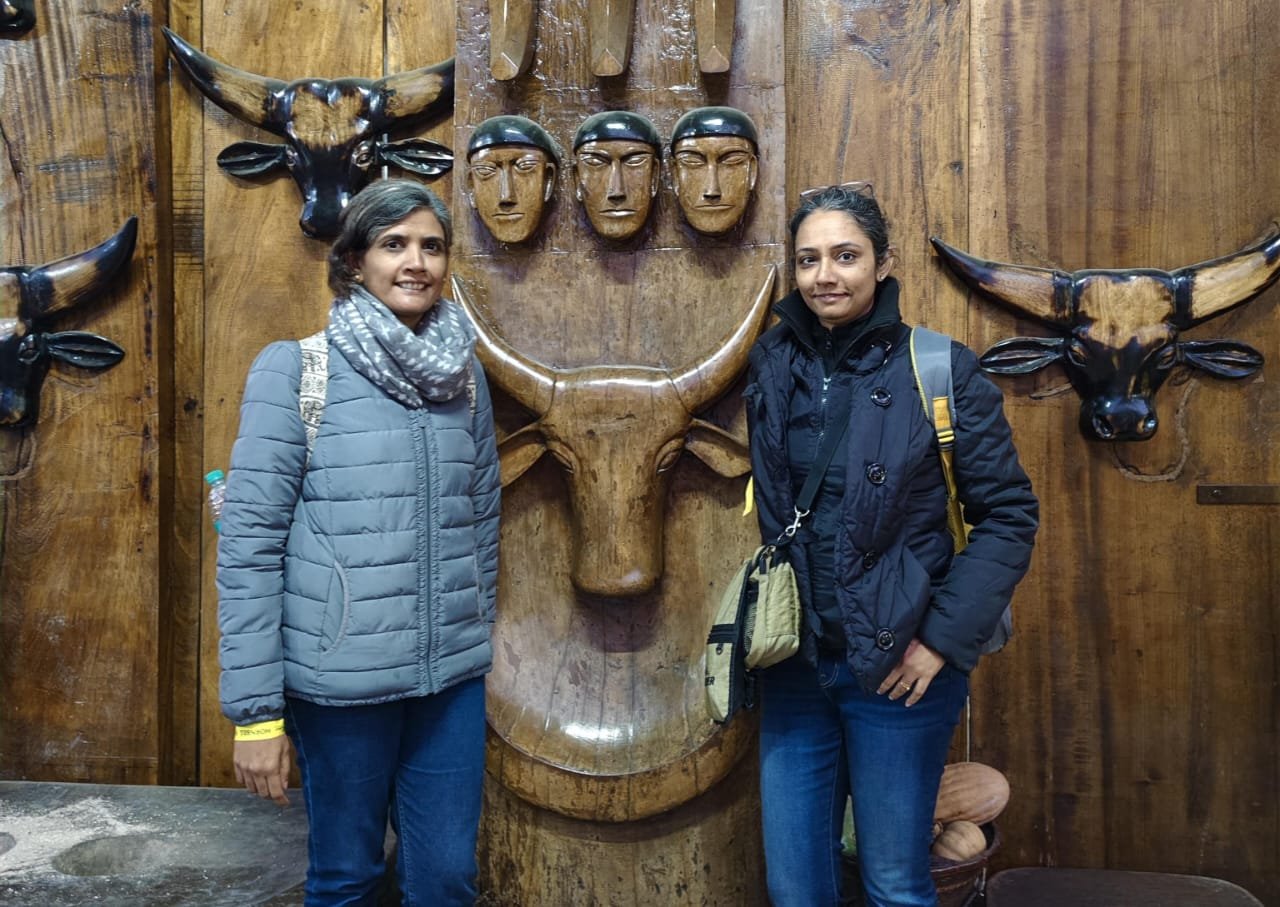Harini and Rekha, visitors from Chennai, shared their first-time experience at the 25th Hornbill Festival, which they attended on Day 9. Having previously visited Meghalaya, they had heard glowing reviews about the festival from friends and read about its vibrant culture and heritage in various travel magazines. This inspired them to plan their trip this year, coinciding with the festival’s milestone anniversary.
Harini and Rekha acknowledged and praised the festival, calling it “very, very well-organised, so beautifully done and decorated.” Reflecting on their arrival, they noted: “What really struck us the most was how orderly everything was done, the cleanliness practiced not just at Kisama Heritage Village but also in Kohima town and other parts of the Northeast In terms of garbage disposal.”
They were also impressed by the traffic management, describing it as “orderly, with no honking,” and appreciated the politeness and friendliness of the people they encountered. “It’s been a very good experience for us,” they shared.
Suggestions for improvements
The duo suggested that smaller maps could be provided to visitors to help them navigate the festival grounds more easily. “Other than that,” they added, “everything is a great experience.”
Download Nagaland Tribune app on Google Play

Cultural Takeaways and Memorable Moments
When asked about the memories they would take back, Harini and Rekha highlighted the cultural dance performances as a standout feature. They remarked: “What struck us the most was watching all the cultural dance performances and the history behind them—whether it’s celebrating the harvest festival or a community festival, people come together to honor different elements of nature.”
They observed that the Hornbill Festival offers a valuable opportunity to learn about the Northeast’s diverse yet interconnected cultures. “The thing is that it’s so common across different communities in Northeast India. So far, we have known very little about the region, and this festival is a great way to learn more about it.”
The festival, they noted, Is also a platform for preserving traditions and giving younger generations a glimpse into their heritage. “It’s great to see so many similarities with their culture—like the use of rice, rice paste, and practices like rice husking—while the weather and languages are different,” they shared.
Reflecting on their experience, Harini and Rekha expressed a sense of connection between cultures. “It’s so heartwarming to see the similarities of our cultures while being so many kilometers apart, but it’s unique and common at the same time.”
The pair concluded by expressing their intention to return in the future, this time with their families, to further explore and celebrate the vibrant culture of the Northeast.

